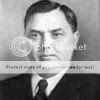Well, I am a Croat but I can't use that as evidence of attitudes anymore than you can since neither of us was probably politically aware in the 60's and 70's, or even alive. That the Croatian Spring was a mass movement (recognized by the name the state gave it, MASPOK - Masovni pokret) attests to popular attitudes. However, this did not mean they wanted outright independence. The leadership of the Spring, afterall, came from within a reforming element of the Party. It was part of a historical process.
If I take what you write about western capitalist ideas and propaganda as just a highly ideologized way of saying that liberal ideas from the west disrupted the federation, than I can accept that. However, Yugoslavia never exactly tried to keep them out. It wasn't exactly hard, if you remember, for people in Croatia and Slovenia to drive to Italy for the day to go shopping. Also, it's difficult to argue that the West was particularly keen on destroying Yugoslavia since they wanted to use Yugoslavia as a counterbalance to the Soviets in Eastern Europe and it was Western money, in the form of loans and tourism, that bankrolled the economic development of the country.
It's also pretty much impossible to that there was no decentralization of Yugoslavia because decentralization was the chief defining characteristic of the 1974 constitution. It was designed specifically to enhance the powers of the individual republics and autonomous provinces! They made use of that power and began to defend their individual interests, especially their financial interests, within the political structures of the federation.
No no no, I do not mean liberal ideas in the sense of freedom or some kind of liberal stance for independence. What I mean is imperialistic capitalistic propaganda, you know "fuck communism, the Serbs are the evil people, they are slaughtering the masses, come join capitalism" thats what I mean. Have you not read books or readings outside of the propaganda they give you? Armies of Bosnians and Croatians formed by the U.S to fight against the Serbs. Propaganda in schools and throughout the media and the papers, about the "mean old serbs". Come on your not that naive to not realize what happened, are you? Have you not seen the pattern yet? First China, Than Russia, was it not mean for Yugoslavia to fall? I have met many Croatians who hate Serbians but have met very little who claim Yugoslavia was bad as it's existence. Do you not see the Irony in that? What have we done but betrayed our own slavs? Did we not turn on each other and were blinded by the west and nato? If you believe the Genocidal stories, I do not care to dispute them...Lets leave this part of the conversation out, Is Croatia, Slovenia, Serbia, and the rest of the countries off better now or when they were with Yugoslavia? I'd guess the latter, our economy was booming because of Tito, and it continued. We were communists, or socialists in technicalities but don't you see? To further capitalistic globalization they needed Yugoslavia to be done with. What other way than to turn it's people against each other? If these "Decentralization" ideas started in the 60s why did it take so long to be put into initiative? all the sudden the mighty nato and u.s troops come pouring in and it's kick started? the war was a plan done by the west and America to delude us into dismantling our strong united country.
Thinking about Yugoslavia: Scholarly Debates about the Yugoslav Breakup and the Wars in Bosnia and Kosovo (Hardcover)
by Sabrina P. Ramet
To Kill a Nation: The Attack on Yugoslavia (Paperback)
by Michael Parenti
Media Lies and the Conquest of Kosovo by Michel Collon
read some books about it, Yugoslavia was important to the west, if it stayed intact, it fucked up the whole chemistry of capitalist globalization. we fought a war to further capitalism and thats the truth

























 - By wat0n
- By wat0n